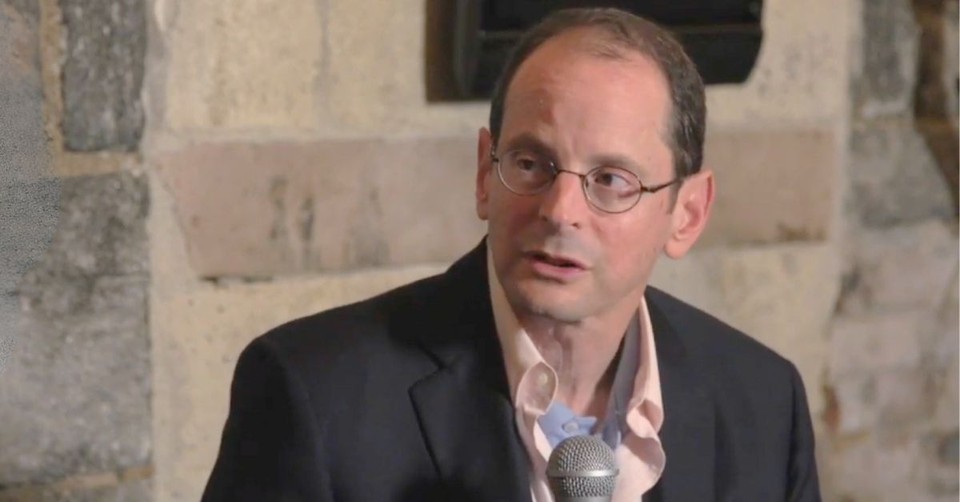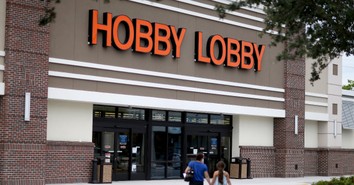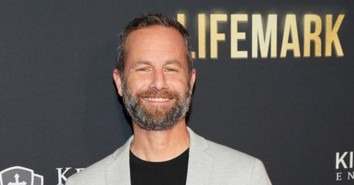Atheist Writer Asserts That True Christianity Is the Key to Saving America

A prominent atheist writer argues that the United States needs to embrace more Christian values to get back on track but that the church is failing in its role of representing Jesus. Jonathan Rauch, a self-identified atheist and a senior fellow at the Brookings Institution, says as much in a new book, Cross Purposes: Christianity's Broken Bargain with Democracy, in which he says the modern church is too secular, too fearful and lacking true faith.
Rauch summarized his arguments in a new interview with Matter of Opinion, a New York Times podcast.
"What really needs to happen to get our country on a better track is for Christianity not to become more secular or more liberal, but to become more like itself, to become more truly Christian," Rauch said.
The "three fundamentals of Christianity," Rauch asserted, align well with "Madisonian liberalism." He defined those three fundamentals as 1) imitating Jesus, 2) not being afraid, and 3) forgiving one another.
"Those things are very much like how you want a constitutional republic," he said. "You can't be afraid of losing all the time. Sometimes, you gotta let the other team win. You have to trust in the system. You have to believe in traits like the basic dignity and equality and humanity of everyone, even the people you oppose. And you can't be so judgmental that you think if you lose the next election, everything is over, and the bad people win, and you've somehow got to drive them out of the country. And when I saw that, I thought, well, there it is. It's in the Scripture. So why aren't Christians doing that?"
The Founding Fathers, Rauch said, believed Christianity was foundational to a healthy nation.
"Christianity is a load-bearing wall in democracy, and the Founders told us that," he said. "They didn't specify that you have to be a Christian, per se, but they said that our liberal, secular constitution … relies on virtues like truthfulness and lawfulness and the equal dignity of every individual. And they understood that those have to come from an outside source. The Constitution won't furnish them. And the source that they relied on principally was religion to teach those things and to build and transmit those values. And it turns out that for most of our history, Christianity has been pretty good at that."
But when the church becomes less Christian, he said, "people begin looking to other places for their sources of values."
"They go to wokeness or QAnon or MAGA, and those turn out to be not the kinds of values that you can use to underpin a democracy," he said. "And that's the situation that we seem increasingly stuck in."
Too many Christians, he said, have embraced either "thin Christianity" or "sharp Christianity."
Thin Christianity is "when Christianity becomes secularized, and it becomes a consumer good, a commodity."
"And the problem with that is that a lot of the benefits of belief to the soul and to the republic come from taking it seriously and participating, joining with a community, giving of yourself to others, not just treating it as a consumer good," he said. "... When religion, especially Christian when that becomes thin, people go elsewhere for their faith and for their sense of meaning in life. And they go to politics, and those are terrible sources of values. They don't sustain the Republic. They undermine it."
Sharp Christianity, Rauch said, "perceives itself increasingly as being at war with the culture around it."
"This is the Christianity that's afraid that it's losing its predominant cultural role in American society, that the next election is the one that will end Christianity as we know it, and so it becomes smaller, it becomes more and more paranoid and frightened about its future," he said. "And as it does those things, it also becomes more political."
The late pastor Tim Keller, Rauch said, had a major influence on his view of Christianity. Further, Rauch said, "the so-called religious right, when they talked about family values, were onto something."
"I think it can only do good and not harm to the country and to Christian witness if Christians can do the work of rediscovering and elevating those elements of the Christian faith which uphold our democracy and which uphold the teachings of Christ," Rauch said. "I can't see that any possible harm would ever result from that. And so what I come down to is addressing my Christian fellow citizens and saying: Why not give Jesus a try?"
Photo Credit: ©YouTube/ReasonTV
Michael Foust has covered the intersection of faith and news for 20 years. His stories have appeared in Baptist Press, Christianity Today, The Christian Post, the Leaf-Chronicle, the Toronto Star and the Knoxville News-Sentinel.
Listen to Michael's Podcast! He is the host of Crosswalk Talk, a podcast where he talks with Christian movie stars, musicians, directors, and more. Hear how famous Christian figures keep their faith a priority in Hollywood and discover the best Christian movies, books, television, and other entertainment. You can find Crosswalk Talk on LifeAudio.com, or subscribe on Apple or Spotify so you never miss an interview that will be sure to encourage your faith.
Originally published January 06, 2025.







